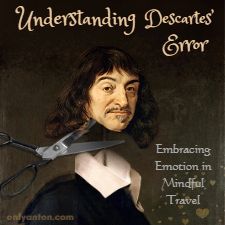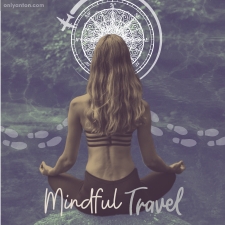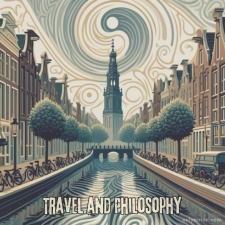Part Two in the Navigating Decisions: Mindful Travel and Intentional Living series

Introduction
Emotions play a pivotal role in shaping our decisions and experiences, particularly when it comes to travel. Far from being mere reactions, our emotions guide us, enrich our journeys, and deepen our connections with the world around us. The interplay between reason and emotion has been a subject of profound interest across cultures and epochs, linking the wisdom of ancient traditions with the insights of modern neuroscience.
In this blog post, I will delve into the significance of emotions in mindful travel, drawing on the pioneering work of neuroscientist Antonio Damasio. His groundbreaking research challenges the long-held dichotomy between mind and body, illustrating how emotions are integral to our decision-making processes.
Exploring the Role of Emotions in Mindful Travel
Understanding how emotions influence our travel decisions is essential for cultivating a mindful approach to exploring new places. Emotions affect our choices and enhance our ability to engage deeply with our surroundings. By embracing Damasio’s insights, we can appreciate the profound impact of emotions on our travel experiences.
Recap of the Previous Post: Passion and Mindful Travel
In my previous post, Passion and Mindful Travel, I explored the origins and meanings of terms like passion, emotion, and affect. We discussed how these concepts are interwoven with the act of travel, shaping our experiences and guiding our actions. I emphasized the importance of moving with intention and being present in the moment, which are vital aspects of mindful travel.
Building on this foundation, the current post will delve deeper into the scientific and philosophical perspectives on emotions. I will explore Damasio’s critique of René Descartes’ mind-body dualism and Damasio’s somatic marker hypothesis, which reveals how emotions influence decision-making. Additionally, I will compare these modern insights with historical and cross-cultural perspectives on emotion, providing a holistic understanding of how emotions can enhance our travel experiences.
By the end of this post, you will have a richer appreciation of the role emotions play in travel and some practical strategies for integrating emotional awareness into your journeys. Let’s embark on this exploration of the heart and mind in mindful travel.
Understanding Emotions and Reason
Antonio Damasio’s Critique of René Descartes’ Mind-Body Dualism
René Descartes, a 17th-century philosopher, famously posited the separation of mind and body, asserting that the mind (or soul) was distinct from the physical body. This dualistic perspective has influenced Western thought for centuries, emphasizing reason and logic as superior to emotions, which were often seen as irrational and disruptive. However, a prominent neuroscientist, Antonio Damasio, challenges this notion in his seminal work, Descartes’ Error: Emotion, Reason, and the Human Brain.
Damasio argues that Descartes’ separation of mind and body is fundamentally flawed. He proposes that emotions are inseparable from the body and crucial to rational decision-making. Damasio’s somatic marker hypothesis encapsulates this perspective, suggesting that emotions are integral to decision-making through their influence on bodily responses.
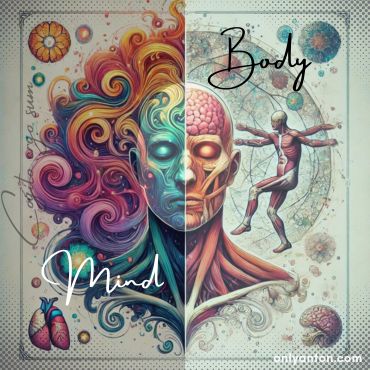
The Somatic Marker Hypothesis
According to Damasio’s theory, external stimuli trigger physical bodily states, which, in turn, give rise to emotions. These bodily responses, or “somatic markers,” are associated with specific experiences and are critical in guiding decision-making. When faced with a decision, these somatic markers help the brain evaluate the potential outcomes of different choices by producing emotional reactions that influence our preferences and aversions.
For example, if a past experience with a particular travel destination was enjoyable, the positive somatic markers associated with that memory can influence the decision to return. Conversely, negative somatic markers related to a stressful travel experience can deter similar future choices. Thus, emotions serve as a shorthand for evaluating complex scenarios, helping us to make decisions more efficiently and effectively.
Implications for Decision-Making
Damasio’s work has profound implications for understanding the role of emotions in decision-making. Emotions provide essential information that can guide choices, particularly in complex situations where rational analysis alone is insufficient. They help prioritize options, allowing us to make decisions that align with our values and past experiences.
For travellers, emotions play a vital role in shaping travel choices and experiences. Awareness of how emotions influence decisions can lead to more mindful and intentional travel planning. By recognizing our bodies’ emotional signals, we can make choices that enhance our overall well-being and satisfaction.
Acknowledging Criticisms
While Damasio’s somatic marker hypothesis has gained significant support, it is not without its critics. Some argue that the hypothesis lacks sufficient empirical proof, pointing out the need for more concrete evidence to validate the theory fully. Additionally, concerns about neurological determinism arise, as some fear that emphasizing the role of emotions in decision-making might undermine the concept of free will.
Despite these criticisms, the broader acceptance of holistic approaches in modern medicine and psychology underscores the importance of integrating emotions and reason. Holistic models considering the mind-body connection have become increasingly popular, recognizing that emotions and bodily responses are essential to overall health and decision-making.
In conclusion, Damasio’s critique of Descartes’ mind-body dualism and his somatic marker hypothesis offer valuable insights into the integral role of emotions in decision-making. Understanding and embracing the interplay between emotions and reason allows us to make more informed and mindful travel decisions, leading to richer and more fulfilling experiences.
Emotions in Different Philosophical Traditions
Western Philosophical Perspectives

William James: Emotions as Perceptions of Bodily States
William James, a pioneering psychologist and philosopher, proposed a compelling theory about emotions in the late 19th century. According to James, emotions are primarily perceptions of bodily states. When we experience an emotion, we perceive the physiological changes that occur in our bodies in response to a particular stimulus. For example, the feeling of fear is not just an abstract sensation. It is closely tied to physical responses such as a racing heart, sweating, and muscle tension.
James’ theory emphasizes the physical aspect of emotional experience, suggesting that our bodily responses significantly shape our emotional lives. This perspective underscores the importance of being in tune with our bodies to understand our emotions better. By recognizing the physical manifestations of our emotions, we can gain insight into our emotional states and how they influence our decisions.
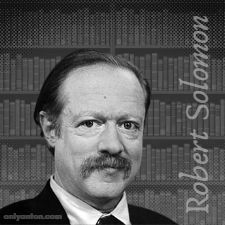
Robert Solomon: Emotions as Judgments and Choices
In contrast to James’ focus on the physical aspects of emotions, philosopher Robert Solomon presented a different view. Solomon argued that emotions are not merely passive experiences but are active judgments and choices. According to Solomon, emotions involve a cognitive component where we interpret and evaluate our experiences, making them integral to rational decision-making.
Solomon’s perspective reframes emotions as essential elements of our rational processes. Instead of viewing emotions as irrational forces needing control, Solomon suggests that emotions are deliberate judgments that reflect our values and beliefs. This understanding aligns with the idea that emotions can guide us in making decisions that cohere with our personal values and rational deliberations.
Eastern Philosophical Perspectives

Buddhist Mindfulness
Buddhism offers a profound approach to understanding and managing emotions through the practice of mindfulness. Mindfulness, or “sati” in Pali, involves cultivating a heightened awareness of the present moment, including our thoughts, feelings, and bodily sensations. The practice encourages observing emotions without immediate reaction, allowing individuals to understand their feelings more deeply without being overwhelmed by them.
In mindfulness practice, emotions are acknowledged and accepted as natural aspects of human experience. This non-judgemental observation helps maintain emotional balance and clarity. By observing emotions mindfully, travellers can better navigate their emotional responses to new environments and experiences, leading to more enriching and reflective travel experiences.

Taoist Harmony: Wu Wei
Taoism, an ancient Chinese philosophy, emphasizes harmony and balance in all aspects of life. A central concept in Taoism is “wu wei,” which can be translated as “non-action” or “effortless action.” Wu wei involves aligning oneself with the natural flow of life and acting in harmony with the environment rather than against it.
In the context of emotions, Taoism advocates for a balance between emotional and rational aspects of life. Emotions are not seen as obstacles but as natural elements that, when balanced with reason, contribute to a harmonious existence. This perspective encourages a seamless coexistence of emotions and rationality, promoting a state of flow where actions are natural and unforced.
By embracing the Taoist principle of wu wei, travellers can learn to navigate their journeys with ease and adaptability. This approach allows for a more spontaneous and fulfilling travel experience, where emotions and rational decisions coexist harmoniously. Such an approach can also lead to a deeper connection with the surroundings and a more authentic engagement with the travel experience.
Integrating Philosophical Insights
The integration of Western and Eastern philosophical perspectives on emotions provides a comprehensive understanding of how emotions influence our decisions and experiences. By combining the insights of mindfulness, wu wei, and the cognitive theories of James and Solomon, we can appreciate the multifaceted nature of emotions. This holistic approach encourages a mindful and intentional engagement with our emotions, enhancing our travel experiences and fostering personal growth.
Practical Applications in Mindful Travel
Emotional Awareness
Emotional awareness is a fundamental aspect of mindful travel. Being attuned to your emotions and bodily sensations can significantly enhance your travel experiences. Emotions are natural responses to new environments, interactions, and experiences. Rather than suppressing these feelings, it’s essential to acknowledge and accept them. This acceptance allows you to understand your emotional responses better and integrate them into your travel experiences.
When travelling, emotions can range from excitement and joy to anxiety and frustration. Recognizing these emotions as they arise helps you navigate them constructively, leading to more fulfilling and meaningful travel experiences. By being emotionally aware, you can respond to situations with greater clarity and presence, enhancing your overall journey.
Techniques for Practicing Emotional Awareness
Emotional awareness can be incorporated into your travel routine through various practical techniques. Here are some methods to help you stay connected with your emotions during your travels:

Mindful Breathing:
Technique: Take a few moments each day to focus on your breath. Inhale deeply through your nose, hold for a few seconds, and exhale slowly through your mouth. Pay attention to the sensations of breathing and how your body responds.
Benefit: Mindful breathing helps ground you in the present moment, reducing stress and increasing emotional clarity.
Journalling:
Technique: Keep a travel journal to document your experiences and emotions. Write about your day, noting significant events, feelings, and reflections.
Benefit: Journalling provides a safe space to express and process your emotions, leading to greater self-awareness and emotional balance.

Reflective Practices:
Technique: Set aside time each day for reflection. This time could be during a quiet moment in the evening or while enjoying a peaceful view. Reflect on the emotions you experienced throughout the day and what might have triggered them.
Benefit: Reflective practices help you understand your emotional patterns and responses, allowing you to navigate future experiences more mindfully.
Mindfulness Exercises:
Technique: Practice mindfulness exercises such as body scans, where you mentally scan your body from head to toe, noticing any areas of tension or discomfort. Another exercise is mindful observation, where you focus intently on a particular object, noting its details without judgment.
Benefit: These exercises enhance your ability to stay present and aware of your surroundings and internal states.
Personal Anecdote
During a winter holiday trip to the Black Dragon Pool Taoist temple in the northern suburbs of Kunming, Yunnan, China, I experienced a sudden wave of anxiety. The thought of the upcoming semester and the demands of teaching at the university loomed over me, casting a shadow on a peaceful day. Instead of pushing these feelings aside, I chose to acknowledge them.
I found a quiet spot within the serene temple gardens, sat down, and began to focus on my breath. Practicing mindful breathing helped me center myself and genuinely appreciate the tranquil beauty surrounding me. As I sat there, I contemplated the positive aspects that a new semester could bring, shifting my perspective from dread to anticipation.
Reflecting on my present environment, I expressed silent gratitude for the opportunity to visit such a calming place. Later, I documented this experience in my journal, realizing how this moment of emotional awareness transformed a potentially stressful situation into a profoundly enriching experience. This personal encounter underscored the power of mindfulness and emotional presence, reinforcing the lessons from Damasio’s work on the integral role of emotions in our decision-making processes.
These techniques and personal reflections can cultivate a deeper emotional awareness that enhances travel experiences. Emotional awareness enriches your journey, fosters personal growth, and creates a more profound connection to the places you visit.
Integrating Diverse Wisdom
Convergence of Ideas
Antonio Damasio’s findings on the role of emotions in decision-making offer a fascinating convergence with traditional practices across various cultures. His somatic marker hypothesis, which emphasizes the integral role of emotions in guiding rational decisions, resonates with ancient wisdom that has long acknowledged the interplay between emotion and reason. This alignment suggests a universal understanding that emotions are not just secondary reactions but primary drivers in the human decision-making process.
For instance, traditional Chinese medicine and philosophy often view the heart as the centre of both emotional and cognitive functions. Similarly, many indigenous cultures consider emotional experiences essential to holistic well-being and decision-making. Damasio’s work, which bridges neuroscience and psychology, echoes these age-old beliefs by scientifically validating the significant impact of emotions on our cognitive processes.
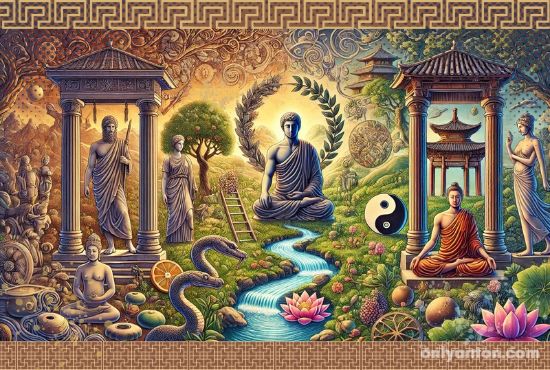
Integrating Modern and Ancient Wisdom
The integration of modern scientific insights with ancient philosophical wisdom offers a holistic approach to understanding emotions. This synthesis is not only intellectually satisfying but also practically beneficial. Modern science provides empirical evidence and detailed mechanisms, while ancient wisdom offers timeless practices and philosophical frameworks.
Combining these perspectives can enhance our ability to navigate emotions effectively. For example, one can enrich mindfulness practices rooted in Buddhism by understanding the neurological basis of emotion regulation provided by Damasio’s research. Similarly, the cognitive techniques of Stoicism can be applied with greater insight when informed by contemporary psychological theories.
Examples from Different Traditions
Stoic Rational Reflection
Stoicism, an ancient Greek philosophy, advocates for rational reflection and emotional regulation. Stoics believe that one can achieve emotional resilience by cultivating rational thought and maintaining a sense of tranquillity. They emphasize the importance of distinguishing between what is within our control and what is not, encouraging acceptance and the rational management of emotions.
- Example: The Stoic practice of daily reflection, where individuals review their day and analyze their emotional responses, aligns with Damasio’s emphasis on understanding how emotions influence decisions. By reflecting on their emotional reactions, Stoics aim to cultivate a balanced state of mind, where reason guides actions more than impulsive emotions.
Buddhist Mindful Observation
Buddhism strongly emphasizes mindfulness and the observation of one’s inner experiences. Mindfulness practices involve non-judgmental awareness of the present moment, including one’s thoughts, feelings, and bodily sensations. This practice helps individuals understand their emotions deeply and maintain emotional balance.
- Example: Mindful breathing and meditation techniques encourage individuals to observe their emotions without becoming overwhelmed by them. These strategies align with Damasio’s idea that awareness of bodily responses (somatic markers) can guide rational decision-making. By observing emotions mindfully, one can achieve a clearer and more balanced perspective, enhancing decision-making processes.
Taoist Harmony: Wu Wei
Taoism, with its principle of wu wei (effortless action), emphasizes harmony and natural flow in life. Wu wei encourages individuals to align with the natural course of events and act in harmony with their environment, rather than forcing outcomes. This philosophy promotes a balance between emotional and rational aspects of life.
- Example: In Taoist practice, maintaining emotional balance and harmony with one’s surroundings can lead to more effective and natural decision-making. This principle complements Damasio’s findings by suggesting that decisions align more with one’s true nature and the surrounding environment when emotions and rationality coexist seamlessly.
By integrating these diverse traditions of wisdom, we can create a more comprehensive approach to understanding and managing emotions. This holistic perspective enriches our personal experiences and enhances our ability to make mindful and intentional travel decisions. Recognizing the convergence of modern science and ancient traditions empowers us to navigate our emotional landscapes with greater insight and balance, leading to more fulfilling journeys.
Conclusion
Understanding and integrating emotions in mindful travel is essential for creating richer and more meaningful experiences. Emotions are crucial in how we perceive and interact with the world, influencing our decisions and shaping our journeys. By embracing the insights from Antonio Damasio’s work and integrating the wisdom from various philosophical traditions, we can achieve a deeper connection with our travel experiences.
These concepts align perfectly with the values of the Only Anton brand, which emphasizes mindfulness, intentional living, and the integration of diverse perspectives. Mindful travel is not just about the destinations but the journey itself—being present, aware, and emotionally engaged in every moment.
I encourage you to embrace mindful travel and intentional living for more enriching experiences. Explore your emotions, understand how they influence your decisions, and integrate this awareness into your travel plans. By doing so, you can create travel experiences that are not only enjoyable but also transformative.
Join me on this journey of discovery. Share your thoughts and experiences on the role of emotions in travel. How have your emotions influenced your travel decisions? What practices have you found helpful in maintaining emotional awareness during your travels?
I look forward to hearing from you and continuing this exploration together. Stay tuned for the next post in the series, where I delve deeper into the scientific and philosophical perspectives on emotions with “Understanding Descartes’ Error.” Embrace mindful travel and intentional living, and let your emotions guide you to more meaningful journeys.
What About You?
I invite you to share your thoughts and experiences about passion, emotion, affect, and motivation in travel. How have your emotions influenced your travel decisions? What practices have you found helpful in maintaining emotional awareness during your travels? Your stories and insights can provide valuable perspectives for fellow travellers and enrich our community’s understanding of mindful travel.
As I continue the series Navigating Decisions: Mindful Travel and Intentional Living, stay tuned for our upcoming blog posts:
- Indecision Dilemma: Lessons from Buridan’s Ass: Explore the challenges of indecision and how to navigate them effectively in travel planning.
- Overcoming Overthinking: Understand how to conquer paralysis by analysis and make confident travel decisions.
- Satisficing for Satisfaction: Learn about the concept of satisficing and how it can lead to more fulfilling travel experiences.
Don’t miss out on these insightful articles. Subscribe to the blog for updates on future posts in this series and more tips on mindful and intentional living. Join us on this journey towards more meaningful and enriching travel experiences!
Further Reading and Resources
For those interested in diving deeper into the role of emotions in decision-making and the integration of modern science with ancient wisdom, here are some recommended books, articles, and websites:
Only Anton Posts
For posts on related topics, check out the following:
- Travel and Philosophy: Discover how the connections between travel and philosophy can inform our journeys and give us mindful insights into cultures.
- Mindful Travel: Explore mindful travel: aligning intentions with experiences, avoiding overplanning, and embracing spontaneity for a meaningful journey.
- Passion and Mindful Travel: Part One of the Navigating Decisions: Mindful Travel and Intentional Living series. Discover the role of passion and emotion in travel decisions. Transform your travel experiences with mindfulness and intention.
- Zen Koans, Absurdism, and Meaningful Travel: Zen koans and Absurdism offer profound insights for mindful travel, encouraging presence, openness, and joy in the journey.
The following resources offer information for those looking to explore the intricate relationship between emotions, reason, and mindful travel further.
Books:
- “Descartes’ Error: Emotion, Reason, and the Human Brain” (2005), by Antonio Damasio: A foundational text that explores the relationship between emotions and rational decision-making, challenging the traditional mind-body dualism. Look for a copy online or at a nearby library, or add it to your library by getting it here.
- “The Feeling of What Happens: Body and Emotion in the Making of Consciousness” by Antonio Damasio: This book delves further into Damasio’s research, offering insights into how emotions contribute to the sense of self and consciousness. Check it out online, at a local library, or get it here.
- “The Philosophy of Cognitive-Behavioural Therapy (CBT): Stoic Philosophy as Rational and Cognitive Psychotherapy” by Donald Robertson: This book explores the connections between ancient Stoic philosophy and modern cognitive-behavioural therapy, providing practical insights for managing emotions. Look for it at a library or online, or get your copy here.
- “Mindfulness in Plain English” by Bhante Gunaratana: A comprehensive guide to mindfulness meditation from a Buddhist perspective, emphasizing the importance of emotional awareness. Find it online, at your local library, or get it here.
Articles and Blog Posts:
- “The Role of Emotions in Decision Making” by Jennifer Lerner, Ye Li, Piercarlo Valdesolo, and Karim Kassam, Annual Review of Psychology: This scholarly article reviews the current understanding of how emotions influence decision-making processes. Find the article here.
- “Mindfulness and Emotional Intelligence” by Dan Mager, Psychology Today (March 2019): A blog post that explores how mindfulness practices can help regulate emotions and improve overall well-being. Check out the post here.
- “The Power of Emotions in Decision Making,” by Moshe Ratson, Psychology Today (August 2023): An article on using emotions constructively in decision making. Find the article here.
Websites:
- Mindful.org: A comprehensive resource for articles, guided meditations, and practices related to mindfulness and emotional awareness. Visit the site here.
- The Greater Good Science Center (ggsc.berkeley.edu): Offers research-based insights into the science of well-being, including the role of emotions and mindfulness in enhancing life experiences. Visit the site here.
- Stanford Encyclopedia of Philosophy: This resource provides in-depth entries on various philosophical topics, including emotions, Stoicism, and the philosophy of mind. Visit the website here.
